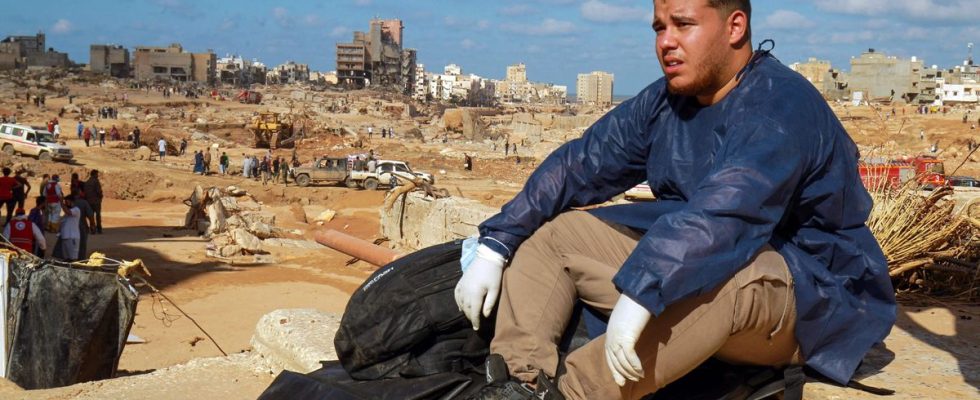Apocalyptic scenes, a disastrous human toll, tens of thousands missing. In Libya, floods engulfed the town of Derna, in the east of a country cut in two by a severe political crisis. The waters swept away nearly 4,000 people, a few days after a deadly earthquake more than 2,000 kilometers away, in Morocco. Rejected (for the moment) by the Moroccan authorities, France wasted no time in showing its solidarity with Libya by deploying emergency aid: a mobile hospital and around fifty firefighters were mobilized. Several tons of material will be sent.
As with Morocco, many countries and international organizations have promised food, relief and care to Libya. But, unlike its North African neighbor, the entire country and the disaster area of Derna are difficult to access, particularly for NGOs and humanitarian associations.
Like the aid in Syria after the earthquake, it promises to be difficult to orchestrate in Libya. “In the long term, the need for development and reconstruction of infrastructure is much greater in Libya than in Morocco,” comments Nicolas Vercken, director of campaigns and advocacy at Oxfam France. Are we already there? If we are not there, what capacity can we have to be operational quickly, at lower cost, in an efficient and secure manner? We all ask ourselves these questions. In Libya, we have already carried out several missions, and we have never been able to have a relevant operating capacity to secure our staff and have a useful intervention.”
The visa problem
Bilateral country interventions follow one another, and one of the challenges will consist of “coordinating all these efforts on the ground to be able to direct them effectively towards the populations and areas that need them”, indicates Matthieu Chantrelle, deputy head of the Libya program at Médecins sans Frontières.
The NGO, present “in the west of the country” in the city of Tobruk since Tuesday, is on its way to Derna with “medical equipment and body bags”, with no guarantee that the opening caused by this disaster will be sustained. “Visas are required to travel to Libya and the authorities have issued very few for MSF for several years. NGOs are mobilizing but are still not very present due to access difficulties. A lot of uncertainty remains about what it will be possible to do in the future,” specifies the manager.
“Unexpected alliances” can arise in times of disaster
In this country at war, “you need to have prior anchorages, rear bases and administrative and security logistics to intervene,” confirms Jean-François Corty, associate researcher at IRIS and vice-president of Médecins du Monde. Before recalling that such a crisis can cause “unexpected alliances” or thaw certain relationships. Thus, despite tensions, Algeria, which had closed its airspace to Morocco for two years, authorized flights over its skies to facilitate certain humanitarian convoys. “In 2003, after the Bam earthquake in Iran, the United States sent planes to help the population,” adds the specialist.
While a “wave of solidarity from Libyan civil society” is being organized, the humanitarian task promises to be immense: “stabilizing and evacuating the wounded and the sick in critical condition, reestablishing continuity of care [notamment pour les patients souffrant d’une affection chronique]help the homeless [abris, eau, nourriture, biens de première nécessité] and more generally reconnect the networks destroyed by the disaster,” explains Matthieu Chantrelle, who specifies that “mental health needs” will be necessary for those affected. With an additional difficulty, given the political situation: “The war taints the authorities’ capacity to respond,” concludes Jean-François Corty.

